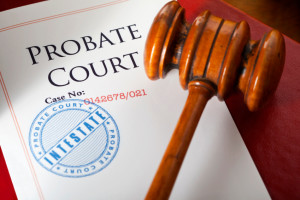Free Consultation
Available 24/7 for Immediate Help
(614) 263-5297

Probate is the legal process of a probate court overseeing the distribution of the decedent’s estate. The role of an Ohio court is to make sure debts get paid, resolve financial obligations, make sure taxes get paid out, and distribute the remainder of the estate to the rightful heirs.
If someone dies and leaves a will, they will often name a person as an executor. The executor’s role is to carry out the wishes of the will when valid. If the decedent dies without a will, then the court will name someone to administer the estate. This is often the surviving spouse. If the there is no surviving spouse or if the spouse declines the role, then the court will go to next of kin, and if that is unsuccessful, the court will choose another suitable Ohio resident. Obviously, it is better to name someone yourself, which is why taking the time to meet with an attorney to put together a will is critically important.
The first thing the administrator must do is to inventory and appraise the decedent’s estate. The administrator has three months from the time they are appointed to do this. The fair market value of assets must be determined. Once the inventory is compiled, it must be submitted to the probate court. Some assets are not subject to probate. These include IRAs, insurance policies, retirement benefits payable on death, and a jointly owned home, car, or bank account.
The administrator must also collect all the assets. This can be tougher than you think. Some assets might be the subject of ongoing lawsuits, or some assets might be disputed such that the administrator might need to file a new lawsuit in order to get access to the asset.
Creditors need to be paid on debts. Creditors have 6 months from date of death in which to file a written claim against an estate, which must be sent to the decedent’s address. Remember that debts are not all equal — debts live hierarchically, with some taking priority over others. For example, taxes need to be paid first. Expenses for administering the estate, bills, and funeral costs need to be paid before disbursing any remaining estate to heirs as well.
Distributing the remainder to heirs can go a few different ways. If the decedent died with a will, then unless a will provision is contested by an interested party, the estate will be distributed in accordance with the testator’s wishes. Courts typically want to do what the decedent wanted, so terms will be read with an eye towards this. However, sometimes issues come up in which interested parties will contest the validity of the will. For example, if the decedent was not of sound mind when making the will or it could be shown that the will was made under duress, these could be reasons for invalidating part or all of a will. One way to minimize issues with your estate after you pass away is careful estate planning. It is never too early to talk with an experienced estate planning attorney.
 If the decedent died without a will, a situation otherwise known as intestacy, then Ohio’s statute of descent and distribution will govern how the estate is handled. In general, the intestacy statute starts with the closest of kin and moves out. Very generally, the intestacy statute goes as follows:
If the decedent died without a will, a situation otherwise known as intestacy, then Ohio’s statute of descent and distribution will govern how the estate is handled. In general, the intestacy statute starts with the closest of kin and moves out. Very generally, the intestacy statute goes as follows:
Administering an estate is a time-consuming, often stressful process. Let Wolfe Legal Services help you and your loved ones through this difficult time. You can rest easy knowing that our experienced, caring Columbus probate attorneys will be taking care of the details every step of the way. Contact Wolfe Legal Services today for a free consultation at (614) 263-5297.
© 2026 Wolfe Legal Services
View Our Terms & Conditions | Privacy Policy
Website Maintained and Hosted by Adamedia & Adam The Computer Guy